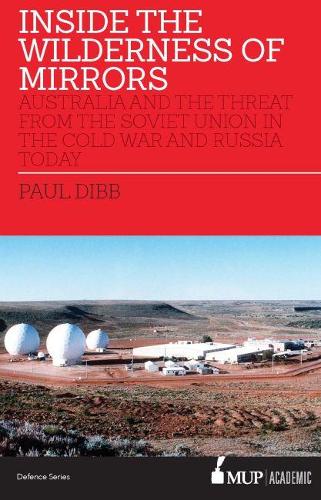
Inside the Wilderness of Mirrors: Australia and the threat from the Soviet Union in the Cold War and Russia today
(Paperback)
Available Formats
Publishing Details
Inside the Wilderness of Mirrors: Australia and the threat from the Soviet Union in the Cold War and Russia today
By (Author) Paul Dibb
Melbourne University Press
Melbourne University Press
1st June 2018
Australia
Classifications
General
Non Fiction
327.94047
Physical Properties
Paperback
191
Width 127mm, Height 213mm, Spine 11mm
234g
Description
Inside the Wilderness of Mirrors is Paul's unique insight into how Australia saw the threat from the Soviet Union during the Cold War era and beyond. Throughout the Cold War Paul Dibb worked with the highest levels of Australian and American intelligence, and was one of very few Australian officials to be given the top-secret security clearance for access to Pine Gap. Only the most senior intelligence officers in both the US and Australia held this clearanceand even then on a strict 'need to know' basis. ;Inside the Wilderness of Mirrors is Paul's unique insight into how Australia saw the threat from the Soviet Union during the Cold War era and beyond. This insider's account of Australian defence strategy reveals the crucial importance of the US-Australian base at Pine Gap and why Moscow targeted it for nuclear attack, and how it felt to be an expert on the Soviet Union at a time when those who dared to study the Soviet Union were necessarily subject to suspicion from their Australian colleagues. Inside the Wilderness of Mirrors concludes by examining the ways in which contemporary Russia presents a continuing threat to the international order.
Author Bio
Paul Dibb is an Emeritus Professor of strategic studies at The Australian National University's Strategic and Defence Studies Centre, which he was the Head of from 1991 to 2004. He is the author or editor of six books and over 160 academic articles about the global strategic outlook, the security of the Asia-Pacific region, the US Alliance, and Australia's defence policy. He wrote the 1986 Review of Australia's Defence Capabilities (the Dibb report) and was the primary author of the 1987 Defence White Paper. His book The Soviet Union- The Incomplete Superpower was published by the international Institute for Strategic Studies in London in 1986, and attracted international acclaim. He was Head of the National Assessments Staff 1974-78, Director of the Joint Intelligence Organisation 1986-88 and Deputy Secretary of Defence for Strategic Policy and Intelligence 1988-91. His career in Australia as a prominent academic, senior policy maker and intelligence official has spanned almost fifty years.
